Best Essential management tools will be explained in this article. Regardless of the size of your company, running a business can be a difficult and stressful task. This is especially valid if you’re endeavoring to accomplish it on your own and aren’t utilising the appropriate management tools that can greatly simplify your life.
It has been determined that 62 percent of small business owners work more than 50 hours per week & that more than half work six or seven days a week. Consider managing all daily operations, directing teams, planning projects, controlling cash flows, hiring people, and allocating tasks and resources. The list goes on and on. While doing this, you are attempting to sell your goods and services by speaking with both current and new clients over the phone and through text messaging.
How can you relieve yourself of some of the tiresome tasks? The solution to your needs can be to implement the appropriate technology. An rising number of companies use this approach. According to the 2020 worldwide survey by McKinsey & Company, 66% of businesses in a range of industries either had at least one of their business processes automated or were in the process of doing so.
Knowing the available options and their key features will help you choose the solution that best satisfies your needs if you want to take advantage of cutting-edge technology. We’ve produced a list of ten essential business management tools in this article that can help you organise your processes and increase productivity. We’ll also go through the advantages & disadvantages of using a combination of separate tools and a unified solution, like Caflou, that consolidates many business management operations on a single platform in order to assist you make the right decision for your small business management.
Top 10 Best Essential Management Tools in 2022
Top 10 Best Essential Management Tools are explained here.
What is business management software?
Business management software can be thought of as an application that aids firms in streamlining their operations by automating the performance of repetitive tasks and duties. These tools are made to relieve business owners and managers of time-consuming, low-value tasks. They improve a number of business operations processes, including time tracking, workflow management, managing customer relations, invoicing, and reporting.
Benefits of implementing management tools for small businesses
Why using management tools in small organisations is advantageous Modern solutions can benefit your business in a number of ways:
- You may focus on activities that are directly related to advancing your business by using time-saving tools. You can save money by using management tools. These savings are expressed as follows:
O Better use of CRM tools to increase customer service and retention
O Finding more lucrative investment opportunities by understanding your financial flows with cashflow management tools
Utilizing document management tools can help you avoid expensive mistakes and information loss.
o Increasing productivity by using scheduling and time tracking tools to help you and your team focus more on the duties at hand while preventing forgetting or missing the ones that are coming up.
- The new business trends of fewer in-person encounters and a distant manner of work are in accord with the use of digital management tools. They assist companies in addressing health issues and preserving regulatory compliance.
Now that you are aware of the rules of the game, let’s look more closely at the crucial solutions you can quickly use in your business.
1. Project Management Tools
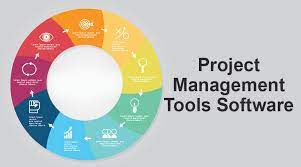
If you’re managing several jobs at once, project management software is a wonderful choice.
These tools may produce and send reminders for forthcoming tasks and events automatically, keeping everyone informed of every item on the project agenda, including information like the time, location, and cost of the event.
Our top pick in this category is Trello. By offering boards, lists, and cards, this simple application enhances team cooperation and productivity.
Trello uses editable templates to provide a clear depiction of project structure, task assignment, and budget planning. It guarantees open communication between departments and simple progress tracking. This is another management tools.
You might also want to take a look at other project management tools like Asana and Basecamp.
2. CRM Software
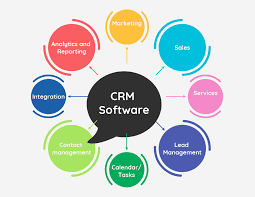
Client relationship management (CRM) is a crucial business tool that gives small firms a central location to coordinate and evaluate performance across all customer touchpoints. You can observe who accesses your website and who receives, opens, and reads your emails. Through robust integration features, a strong CRM solution will also assist you in maintaining your customer information’s organisation and ease of access to other platforms.
Pipedrive, a deal-driven CRM application, with an easy-to-use UI and call and email synchronisation.
This stylish and user-friendly small company choice has a mobile application and is simple to link with other products.
Pipelinecrm and Salesforce are additional excellent choices in this group.
3. Workplace communication software

As your company expands, you’ll need cutting-edge digital communication tools to help your staff stay in touch via file-sharing and chat. With other employees in your firm, you can connect instantaneously by sending text, photographs, videos, files, or web links using an instant messaging programme like Slack, Skype, Whatsapp, Viber, or Facebook Messenger. Another method to improve communication at work is video conferencing, which is especially important for distant work situations. It works well as a replacement for in-person meetings and keeps your team on the same page. This is another management tools. Also check kechie alternatives
The tool Microsoft Teams is excellent for connecting employees. It features data and screen sharing capabilities in addition to its basic real-time video discussions and allows for a lot of customization.
The tool has many integration possibilities and the ability to record.
Both Google Meet and Zoom offer a wide range of functionalities in their video conferencing offerings.
4. HR Software

You might view an HR solution as a superfluous investment if you run a small business with fewer employees. No matter how many people are on your team, you still have HR responsibilities that can interfere with your productivity and time. The best tool for streamlining the hiring and recruitment process and facilitating employee onboarding, training, and benefits is HR software.
To help you manage your workforce, SnapHRM provides fundamental HR functions like an employee database, payroll processing, attendance management, and days-off management.
In order to reach more potential prospects, you can also make job posts and distribute them on specialised sites. SnapHRM is especially useful for small firms because it is free for those with fewer than five employees.
Freshteam and Eddy are two further examples of HR software designed for small organisations.
5. workforce Management

Depending on your team’s capabilities, you can rely on such tools to manage future workload planning and shift scheduling. To maximise your workforce, you can also analyse past data on the productivity of your staff. Workforce management tools can offer financial insights into the effectiveness of your workforce by comparing their costs to the revenue generated for the company. This is another management tools.
One programme that provides a simple, real-time interface to make handling complicated schedules easier is Skedulo.
Your deskless employees can view task details and schedule updates using the mobile application that is included with our workforce management software.
Planday and When I Work are two methods for small business workforce management that are well taking into account.
6. work reporting Tools
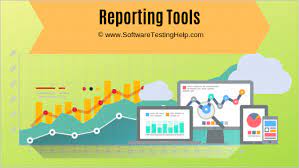
A reporting tool offers details on the job completed or the amount of time spent on a specific assignment by an employee. You can use it to measure the effectiveness and productivity of your team.
For instance, Toggl features a tracking component and offers helpful insights into the productivity of your personnel.
Toggl improves openness and accountability by offering a comprehensive perspective on a single, user-friendly dashboard.
Consider ClicData and GROW as well, which provide reporting and analytics for small enterprises.
7. Cashflow software

Software for managing management flow is created to assist organisations in controlling the flow of money coming in and going out. It assists you in maintaining a positive cash flow and offers data-based predictions for the future cash flow. This is another management tools.
CashAnalytics streamlines cash and liquidity forecasting while automating administrative procedures. This is another management tools.
To address the unique needs of organisations, CashAnalytics offers customisable reporting of real-time cash flows.
Other good options for small business cashflow management tools include Pulse and Float.
8. Invoice software
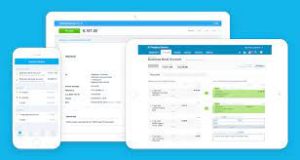
Tools for creating invoices for services and goods also enable you to view past financial information. These systems frequently include editable templates that make creating invoices easier.
For small enterprises, the web-based solution Invoice Simple is a practical, user-friendly choice. It is intended to generate invoices from estimates and include information like shipping information, a due date, and any applicable discounts.
You can manage your invoicing while on the road with the mobile app that comes with Invoice Simple. Your move to a paperless office is made easier by the solution.
Aynax and Blinksale are further choices that provide simple and adaptable invoicing.
9. Document management tools
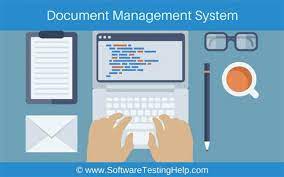
They are made to securely handle, track, and store electronic documents while also enabling collaboration.
An ideal option for small enterprises is Google Drive. It facilitates file sharing and teamwork while offering 15GB of free cloud storage.
The solution provides improved security and includes built-in ransomware, spam, and malware defences. This is another management tools. Also check brandwide alternatives
Dropbox and SmartVault, which enable seamless cloud-based document storage and sharing, are other appealing possibilities.
10. Calendar

Your time can be optimised by using calendar software.
Appointy streamlines customer management, staff scheduling, and appointment booking.
It works well in sectors including IT, retail, education, healthcare, and wellness. You may use the tool to manage appointments, issue automated reminders, accept reservations made through social media, and take payments online. It syncs and interacts with Google Calendar without difficulty.
You can also take a peek at Calendar and Teamup as alternatives.
Selecting the best small business management solution
Should you pick an all-in-one management platform or a combination of different tools? Let’s compare and contrast the advantages and disadvantages of both environments.
Utilizing a combination of individual tools
You can choose to use several tools depending on your needs. For instance, you can integrate Trello, Slack, and Google Drive to facilitate effective team collaboration and communication while using Invoice Simple for billing and CashAnalytics to manage cash flows. What advantages and disadvantages does this strategy have for your company?
Pros
- You can rely on the other solutions in the event that one or more of the particular apps are not functional.
- For each category, you can select the best choice.
- It’s simpler to switch out one tool out of several if necessary or if you decide to switch vendors while operating with an end-to-end solution.
Cons
- Using a different tool for each purpose could result in additional costs.
- Integration and compatibility problems could exist.
- Using particular tools might require switching between many programmes, which would make the process time-consuming.
- It might increase the chance of data inconsistencies.
- You and your team will need to learn how to utilise each of the various solutions, each of which has a different interface and operating philosophy.
- Using numerous separate small business management tools could lead to security concerns because each system takes a different approach and is therefore too challenging to maintain.
Putting in place a single platform for managing all aspects of a business
On the other side, you might choose a platform that handles every aspect of business management. Such a comprehensive system, like Caflou, integrates multiple functions for managing tasks and projects, workflows, cashflows, CRM, invoicing, and other things.
Adopting such a single platform has a number of benefits for your company management.
Pros
- It reduces costs. When you pay a set monthly fee for a single platform, you can save money on a number of other disconnected software solutions.
It boosts productivity. Less time is spent manually entering, checking, and duplicating data sets by you and your team.
- Using a comprehensive solution improves security and threat avoidance.
- It allows for scaling. As your company expands, you can upgrade your account by adding new features.
- Simplified operation and the elimination of compatibility and integration problems are provided by a single end-to-end system.
Why If you utilise a unified interface, you won’t have to become used to using several user interfaces and methodologies.
Cons
- Due to the need to replace or interface with legacy software, adoption may take longer.
However, contemporary solutions offer a wide range of integration features to guarantee seamless system integration. For instance, Caflou is simple to interface with FreshBooks, Quickbooks, Xero, Google Calendar, and Quickbooks. It can also be accessed by an API or programmes like Integromat/Make, Zapier, and others.
Utilizing business management tools can enable you to perform more efficiently. Using technology effectively is a good way to free yourself and your team from monotonous, non-essential activities. So you can focus your period & effort on developing new business concepts, implementing them, and growing your firm. All you demand to do is choose the one that best suits your requirements, then let it handle the low-value tasks. It’s time to start working on your business rather than just in it.

